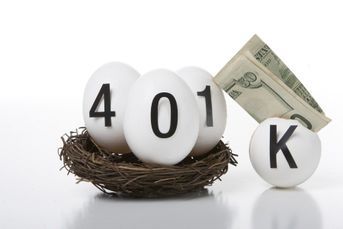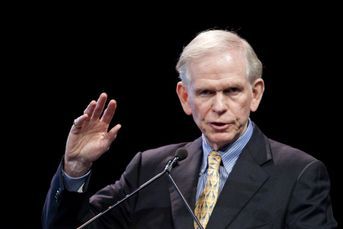Advisers know this year’s economics Nobel Prize winners
Fama, Shiller and Hansen awarded for their work in creating a deeper knowledge of how market prices move.
Eugene F. Fama, Robert J. Shiller and Lars Peter Hansen have won the 2013 economics Nobel Prize for their work toward creating a deeper knowledge of how market prices move.
“The laureates have laid the foundation for the current understanding of asset prices,” the Royal Swedish Academy of Sciences, which selects the winner, said Monday in Stockholm. “It relies in part on fluctuations in risk and risk attitudes, and in part on behavioral biases and market frictions.”
Spanning almost 50 years of research, the three laureates have built knowledge, and exposed holes in our understanding, of how asset prices move, spurring the creation of index funds and also helping to predict the U.S. housing market crash last decade. They have shown it’s difficult to predict price movements in the short run, and easier in the long run, and have devised statistical methods of testing rational theories of asset pricing.
Mr. Fama, 74, known among economists as the “father of modern finance,” is a professor at the University of Chicago. In the mid-1960s, he propounded theories that argued that stock price movements are unpredictable and follow a “random walk,” making it impossible for any investor, even a professional, to gain an advantage. He also showed in later work that so-called value and small-cap stocks have higher returns than growth stocks, and he rejected the notion that markets often produced bubbles. (See also: At last week’s IMCA meeting, Fama reiterates opposition to active management, high fees)
The Nobel committee’s decision this year marks a “very interesting collection because Mr. Fama is the founder of the efficient-market theory, and Mr. Shiller, at least, is one of the critics of it,” said Robert Solow, winner of the Nobel Prize in economics in 1987 and professor emeritus at the Massachusetts Institute of Technology. “You can understand why they wanted a prize in finance. It’s an odd action. It was just an indication that what they were interested in was all those that had contributed to the modern theory of finance at both ends of the spectrum.”
Mr. Fama’s work “transformed” Wall Street by promoting the popularity of index funds as investors questioned the value of paying for active portfolio management, Douglas Clement, an official at the Federal Reserve Bank of Minneapolis, wrote in December 2007. “Few economists have had a greater influence on financial theory and practice,” he said.
Housing index
The study of housing prices has been a long-standing interest to Mr. Shiller, a professor at Yale University. Dissatisfied with the existing data, he created the S&P/Case-Shiller home price indexes, along with Karl Case. Their index captured U.S. home prices doubling from 2000 to mid-2006 and then plunging 35% amid the worst financial crisis since the Great Depression.
When he learned he’d won this year’s prize, Mr. Shiller’s reaction was one of “disbelief,” he said via telephone at a press conference in Stockholm on Monday. “I did not expect it.”
Mr. Shiller demonstrated in the 1980s that it’s easier to predict prices over the long term after finding that stock prices fluctuate more than changes in a company’s dividends would suggest. The same relation holds for bonds, he found.
Efficient markets
Mr. Shiller, born in Detroit in 1946, has been at the vanguard of economists’ chipping away at the theory of efficient markets, which argues that markets price in all available information and that investors can’t beat the market. His research showed that investors can be irrational and that assets from stocks to housing can develop into bubbles.
Mr. Shiller earned his Ph.D in economics from the Massachusetts Institute of Technology in 1972. In 1981, he released a broadside against the theory of efficient markets with a paper in the American Economic Review that showed stock prices are far too volatile to reflect the future stream of earnings from the asset. The paper was titled “Do Stock Prices Move Too Much to Be Justified by Subsequent Changes in Dividends?”
In 2011, at the journal’s centennial, it declared his work one of the 20 most important papers ever published, alongside papers from other Nobel laureates such as Milton Friedman, Joseph Stiglitz, Friedrich Hayek and Paul Krugman.
Mr. Hansen, 60, is one of the co-founders of the Becker Friedman Institute for Research in Economics at the University of Chicago, which builds on the legacy of Milton Friedman.
His work explores formal implications of dynamic economic models in which decision makers face uncertain environments. The main theme of his research has been to devise and apply econometric methods that are consistent with the probabilistic framework of the economic models under investigation. His work has implications for consumption, savings investment and asset pricing.
The Nobel Prize in economics has helped laureates achieve recognition for their theories outside academic circles, often bringing them closer to policy making. Past winners include Amartya Sen, James Tobin and Paul Krugman.
Last year’s prize was awarded to U.S. economists Alvin E. Roth and Lloyd S. Shapley for their exploration of how to make markets work more efficiently by better matching supply with demand. In 2009, Elinor Ostrom became the first woman to win when she received the prize together with Oliver Williamson for investigating the limits of markets and how organizations work.
(Bloomberg News)
Learn more about reprints and licensing for this article.








